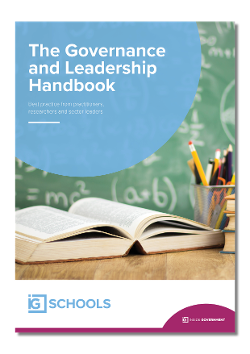Dr Cath Bishop, Olympian, former diplomat and business coach, reflects here on the rhetoric of plans for pupils to catch-up on lost learning time due to the pandemic, and how to potentially reframe this narrative to take a more positive and effective approach. Cath brings her knowledge of leadership and high performance to the conversation taking place across the education sector.
There’s been a lot of talk about catching up recently, and it quickly becomes infectious. FOMO (the fear of missing out) is a social phenomenon that latches on to our basic insecurities of not being part of the ‘in’ group. But on this occasion, we’re all part of the ‘in’ group – we’ve all been affected by the pandemic, we’ve all been restricted, and we’ve all struggled more than once throughout it - and now we’re all trying to make sense of this intense experience.
The last year has certainly been characterised by fear for many, and at times, public messages have even played on that. But that is not a healthy way to communicate and consider our lives, so let’s not actively perpetuate that through language around ‘catching up’. That implies that there is a schedule or timetable that we all must follow. That we can be early, or late. How can it be possible to be behind in life? 60 million people in the UK (or seven billion people on the planet) can’t do everything in exactly the same scheduled order, that makes no sense. Careers are more flexible than ever, and we all have different needs and goals. It’s time for educators and policy-makers to rethink the narrow way they sometimes frame our children’s development and reconsider what best suits the world we live in now.
Rather than the old deficit thinking kicking in about what we and in particular our children have missed over the last period, let’s take a step back and think more broadly. Let’s be creative about the opportunity that lies behind every crisis, seek out the new perspective that accompanies every loss and struggle, and find the bigger picture behind the purpose of what we are going back to, in our children’s case, school. In my book, education should be primarily about learning, exploring, socialising and preparing children for later life. On face value, the last year of lockdown seemed to stop all of that, and it did to a large extent. But although it might have changed what we had originally intended children to be learning, exploring and preparing, it might just be that these children have learnt one of the most important skills in life: finding a way through adversity and managing uncertainty.
Across research literature on resilience - ranging from managing trauma or bereavement, to helping the military to work in hostile environments and athletes to perform under pressure – two themes recur: firstly, the importance of taking time to understand how we respond to pressure and difficulty, to tell our story and make sense of challenging experiences we have, and secondly, to adopt a learning approach that enables us to emerge from the situation ‘stronger, wiser and more able’ (Pemberton). Developing resilience certainly doesn’t require us to ignore what happened and try to return to what we were doing previously. Quite the opposite. Personal growth, flexibility and adaptability sit at the heart of building a resilient mindset and require us to take time to understand what we’ve experienced and adapt accordingly.
In my work in leadership development, working with organisations and teaching in business schools to develop effective leaders, there is a recurrent theme: leaders need to manage uncertainty better. A lot of leaders have been promoted for their specialist expertise and technical knowledge, but when they reach the top of an organisation, they face challenges and opportunities that can’t be solved with purely expert knowledge. In today’s complex world, there are no ‘right’ answers for companies and organisations planning for the future. There is a need to experiment, to listen to multiple perspectives, challenge orthodoxy, learn and unlearn constantly, iterating and adapting. And to do so collaboratively, as none of us on our own will come up with the best solution. As we have seen on the broader scale of creating vaccines or responding to the environmental crisis, we need to learn to work in diverse groups across traditional divides, silos and borders.
So, this summer term, let’s think about what we are preparing our children for, and how we might help them to draw the valuable lessons from the last year – not just what they carried out on google classroom, but how they experienced an unexpected, unpredictable life experience. Alongside a focus on activity, mindfulness and socialising – all critical building blocks of resilience and key components of many a leadership programme that companies send their top leaders on – let’s think about helping pupils to understand and harness the lessons they have all learnt around what it’s like to face uncertainty and manage unpredictability in their lives. What strategies did they adopt? And which worked best and least well? Let’s ask them to explain what it felt like to be at home during this time, listen to all the different stories and lived experiences, the highs and the lows, the questions and doubts, hopes and fears. Let’s focus this summer on developing leaders for the future, rather than on cramming pupils for their next set of tests. Let’s not worry about arbitrary short-term metrics but instead focus on ‘the long win’.
Learn more about Cath's work and expertise here, and follow her on Twitter: @thecathbishop.
Interested in reading more on effective governance and leadership strategies? Download the IG Schools handbook now.
